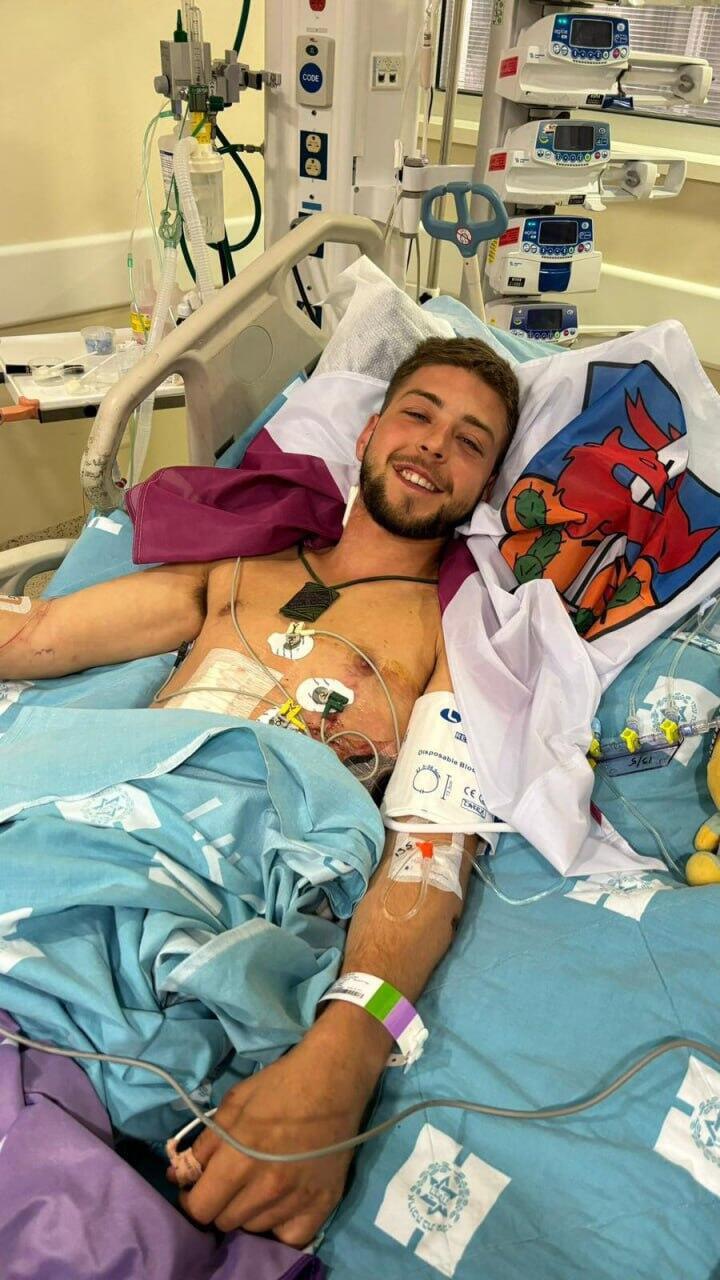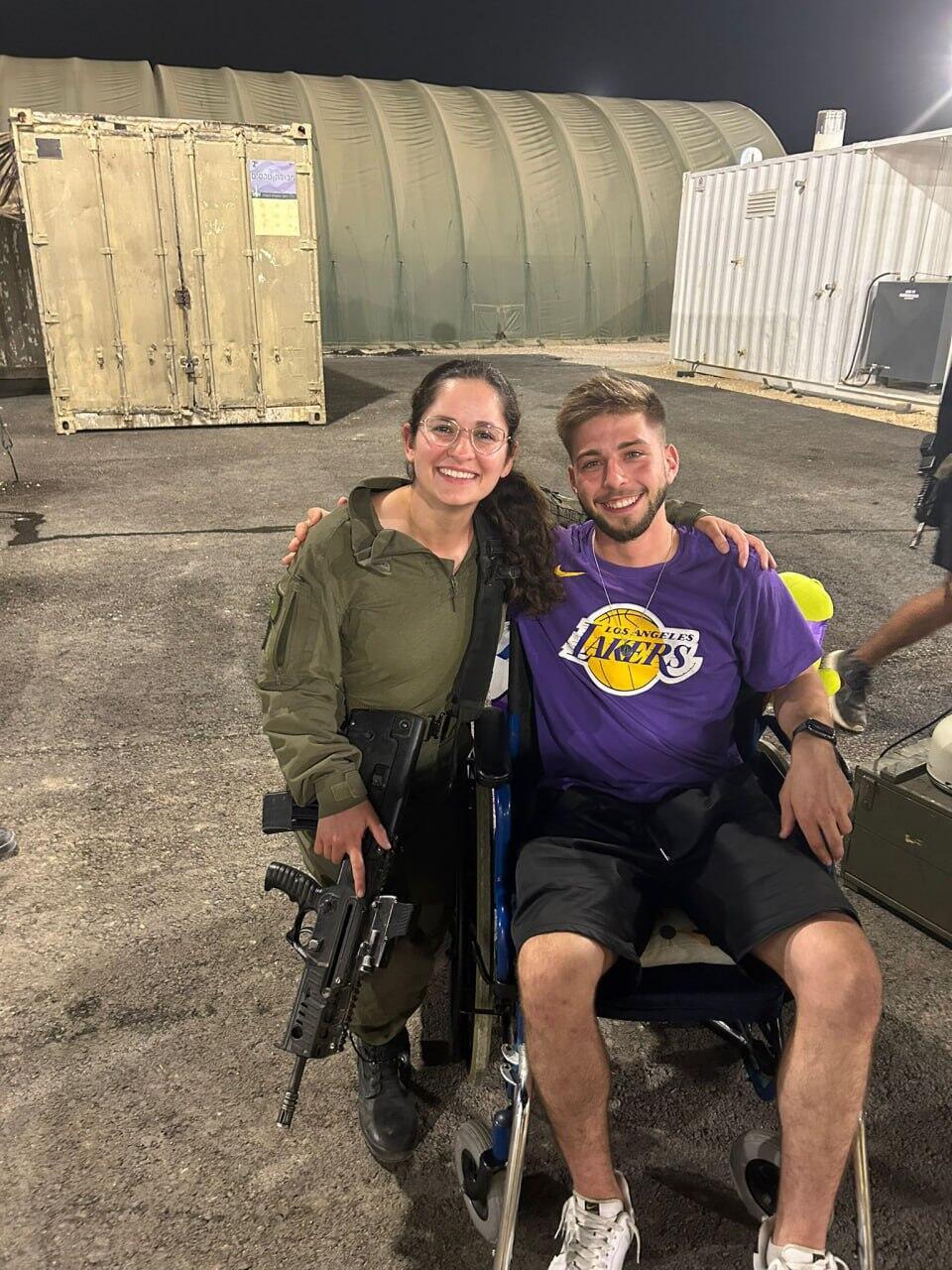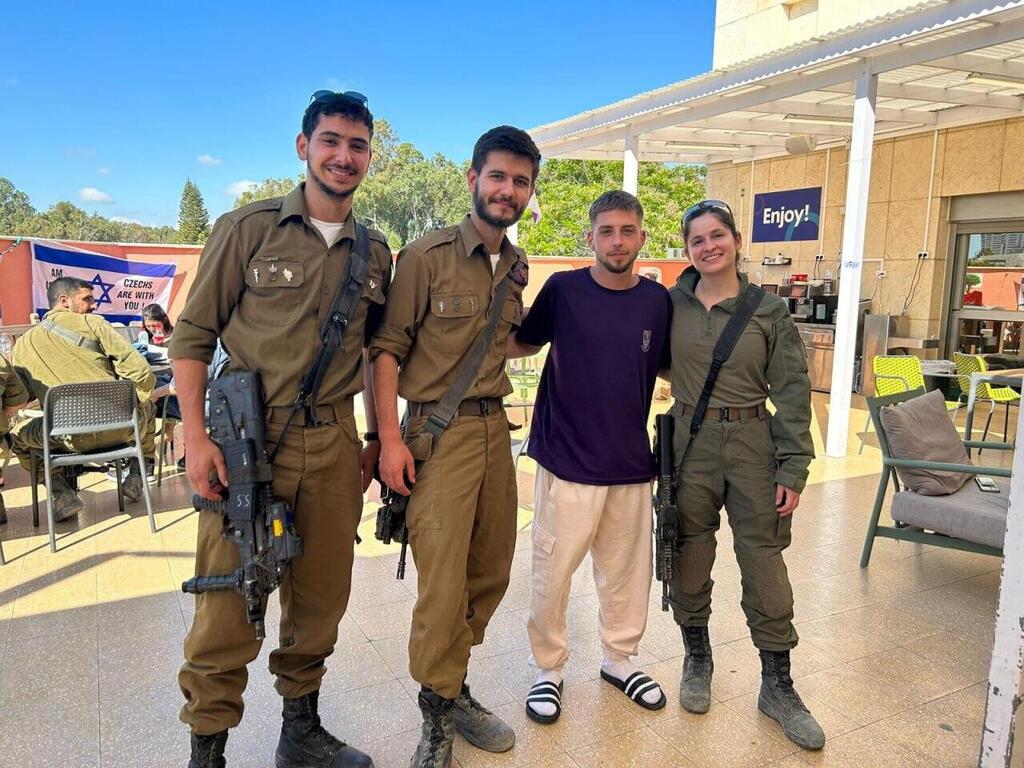"I felt that was it, my life was over. I couldn't breathe," described Staff Sergeant Raphael Melishev. "The bullet entered the vest and penetrated my body. I was just thrown against the wall and broke ribs." Then Dr. Adi Horesh, the Givati Brigade doctor, saved his life in a daring decision in the field.
On the morning of October 7, Melishev was at home in Rosh Haayin. As soon as the forces started to mobilize, he headed south. "The main thing for me was to join the force. Morale was high, we knew what we were fighting for," he told Ynet. The first time he returned home was after 55 days of fighting.
Since then, he has been leaving for a short breaks at home every month, until the forces arrived in Jabaliya. On the first day of fighting, Raphael was shot in the chest. His comrade beside him called for help and they evacuated him to a tank. The next thing he remembers is Dr. Adi Horesh, the Givati Brigade's doctor, who treated him in the APC. "She asked me, 'Raphael, how are you?' and calmed me down, had a conversation with me. She kept asking me questions until I couldn't answer anymore," he said.
"The soldiers who met me didn't think I would survive. I woke up in the hospital after only 12 hours while doctors estimated it would take two or three days. I needed help with everything: getting up to the bathroom or shower, taking me for a walk because I was connected to devices and couldn't move on my own. Suddenly your successes are small but huge, everything is a miracle," he said.
Dr. Adi Horesh remembers Raphael's injury well. "The first picture I remember is shock. I ran inside and saw Raphael. He was pale and sweaty, it took me a moment to recognize him. I thought a second and immediately shouted to transfer him to the vehicle," she said.
Adi did not give up. "I was the only one in the area who believed he would survive. I knew that if we worked fast enough, he would have the best chance of survival. I gave him blood transfusion through the bone, he moaned in pain even in his semi-consciousness," she recalls. "It was important to me that Raphael knew we were treating him, I wanted him to feel that everything was being done to save him."
Adi, who aspired to be a doctor as a high school student, set out on her goal during Operation Protective Edge: "To be a combat doctor. That's what I called it. I was inspired by a doctor from the Engineering Corps who saved lives under fire in operations. In my fifth year of medical studies, the position opened up for women in the combat units."
Adi is a lone soldier and she shares that has been difficult for her parents. "They supported me," she said. "They are amazing, they knew I would do it no matter what." Adi recounted that the hospital where Raphael was taken to is like a home to her. "I studied in the surgical department of Hadassah. The doctors who treated Raphael were the doctors who taught me," she said.
At the end of May, Adi went for a short break, and the next day she went to visit Rafael. "He brags to everyone that I saved him. Even stood up for me and gave me a hug," she said. "I had tears of joy seeing her," Raphael said.
The two recently met again when Raphael decided spontaneously to visit his platoon. "He surprised me. They called me and suddenly I saw him from a distance in a wheelchair, it was very emotional," she said.
Raphael's rehabilitation at Sheba Medical Center is expected to end next month. "I got my life back, I'm learning to appreciate everything. I'm excited that I can walk. Learning to accept proportions about my life," he concludes.





